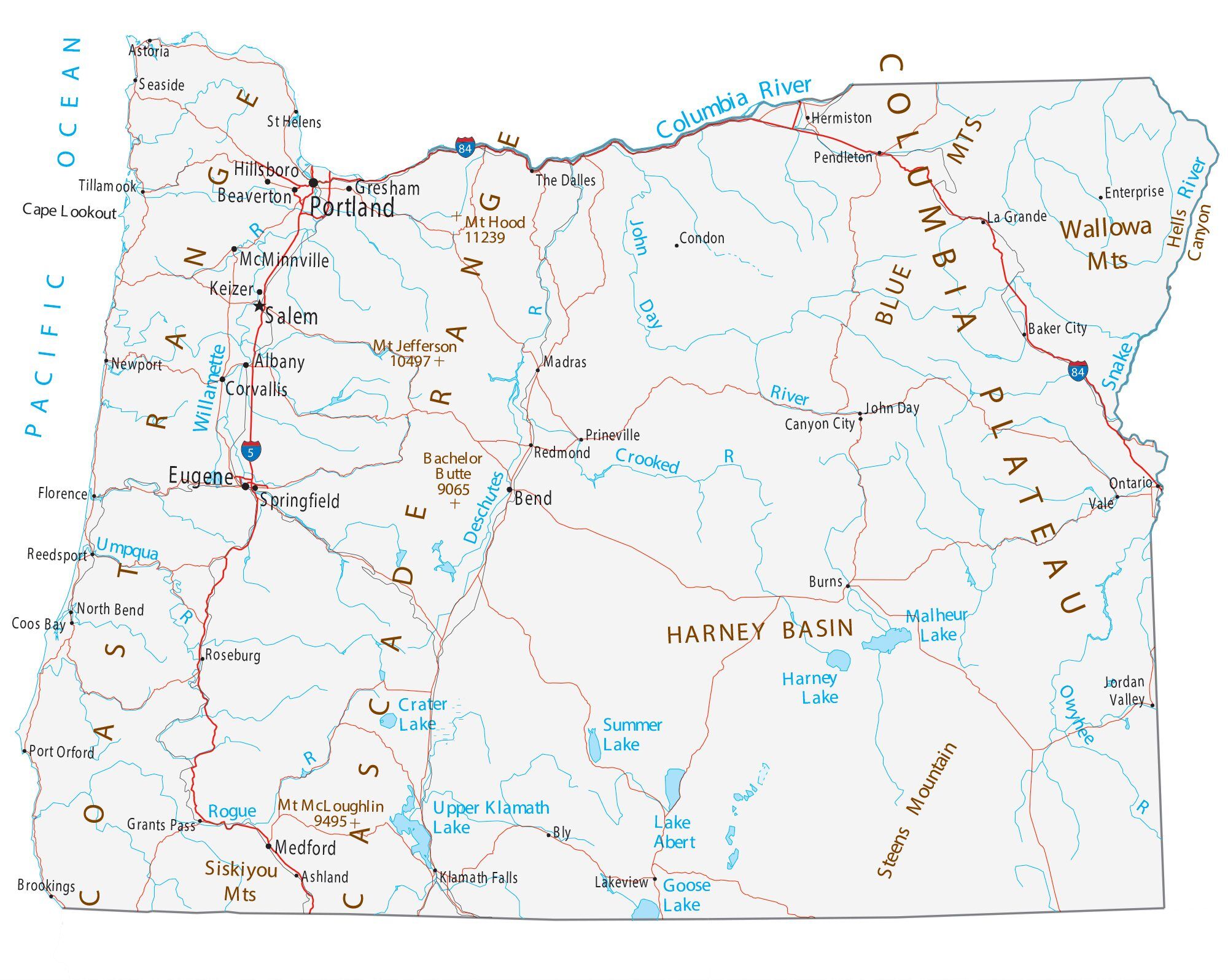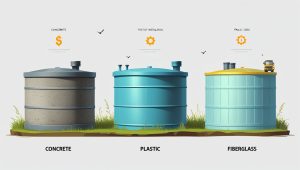Understanding the Oregon Deq Septic Rules is crucial for homeowners, contractors, and property managers. These regulations help ensure that your septic system functions efficiently, remains compliant with state laws, and protects the environment. This guide will break down everything you need to know about permits, installation, wastewater disposal, compliance, and costs associated with septic systems in Oregon.
Table of Contents
- State-Specific Regulations Information
- Compliance Information
- Cost Information
- Local Resources & Contact Information
- Supportive Resources
- FAQs About Septic Systems in Oregon
State-Specific Regulations Information
Installation Permits
If you’re installing a new septic system in Oregon, obtaining the right permit is a necessary step. The Oregon Department of Environmental Quality (DEQ) oversees these regulations.
- Permit Requirements: Yes, a permit is required for new installations, major repairs, and system upgrades. Permits ensure the system complies with state health and environmental standards.
- Permit Costs: The cost of an Oregon septic permit varies depending on the system’s size and complexity. Generally, you can expect costs ranging from $500 to $1,500. These costs include application fees and potential review expenses.
Securing a permit early in your project will help prevent costly delays or compliance issues.
Septic Tank Size and Placement
Oregon septic system regulations outline specific requirements for tank size and drain field placement to maintain system efficiency and environmental safety.
- Tank Sizing: The size of your septic tank depends on the number of bedrooms in your home. For a typical single-family residence, a minimum 1,000-gallon tank is usually required. Larger households may need bigger tanks to accommodate wastewater needs.
- Drain Field Placement: Drain fields must be placed in areas with proper soil drainage. The Oregon DEQ guidelines ensure that drain fields are located far enough from wells, surface water, and property boundaries to prevent contamination.
These regulations aim to maintain groundwater quality and protect public health.
Wastewater Disposal
Proper wastewater disposal is critical in Oregon to prevent environmental contamination and protect public health. The state’s wastewater management laws are designed to address these concerns comprehensively.
- Oregon Wastewater Management Laws: Wastewater must be treated according to DEQ-approved methods before disposal. Systems must meet the guidelines for soil absorption, preventing harmful runoff, and maintaining nearby water quality.
- Disposal Regulations: Whether you’re using an on-site system or working with a wastewater treatment plant, adhering to DEQ wastewater disposal standards ensures your system complies with state regulations and safeguards the environment.
Compliance Information
Potential Fines and Penalties
Not following the Oregon Deq septic rules can result in significant penalties. Compliance is not just about adhering to regulations—it’s about protecting your investment and the environment.
- Fines: Penalties for non-compliance typically range from $500 to $10,000, depending on the severity of the violation. The DEQ assesses these fines based on factors such as the environmental impact and the scale of the non-compliance.
- Legal Ramifications: Violating septic installation or maintenance laws may result in system shutdowns or legal orders to restore compliance. Persistent violations could even result in lawsuits.
Legal Compliance Guidelines
Homeowners and septic service providers must adhere to strict DEQ compliance guidelines to avoid penalties and environmental hazards.
- Installation Compliance: All installations must meet the DEQ specifications for tank placement, size, and system integration.
- Wastewater Disposal Compliance: All wastewater disposal methods must follow DEQ-approved methods, ensuring proper soil absorption and groundwater protection.
By following these compliance guidelines, you can ensure that your system remains operational and legal in the long run.
Cost Information
Typical Costs for Services Related to Septic Maintenance and Installation in Oregon
Maintaining and installing your septic system in Oregon involves multiple costs. Here’s a breakdown of common costs you’ll encounter:
- Permit Fees
- Obtaining an Oregon septic permit usually costs between $500 and $1,500, depending on system size and complexity.
- Septic Installation Costs
- Installing a new septic system in Oregon generally costs between $5,000 and $15,000. The cost depends on factors like system size, soil type, and location accessibility.
- Pumping Service Costs
- Regular septic pumping ensures that solids do not build up and clog your system.
- The cost for septic pumping typically ranges from $300 to $600.
- Frequency depends on household size and usage but is usually recommended every 3 to 5 years.
- Repair and Maintenance Costs
- Repairing a malfunctioning system can cost anywhere from $1,000 to $5,000, depending on the issue.
- Preventative maintenance costs include regular inspections and minor repairs to prolong system life.
Investing in regular maintenance can save thousands in repair costs down the road.
Local Resources & Contact Information
State Agencies Responsible for Septic Systems
- Oregon Department of Environmental Quality (DEQ): This agency oversees all environmental regulations, including septic system compliance.
- Website: https://www.oregon.gov/deq
- Contact: For permits and compliance inquiries, visit the DEQ website or contact your local office.
- Oregon Health Department: Provides guidelines for septic system installation and maintenance.
- Website: https://www.oregon.gov/oha
State-Certified Septic Service Providers
- Many local professionals are certified by the Oregon DEQ.
- These companies offer services such as system installation, maintenance, and repairs.
- Look for local listings or consult the DEQ website to find certified experts near your location.
How to Contact
Oregon Department of Environmental Quality
811 Sixth Ave.
Portland, OR 97204-1390
Phone: 503-229-5696
toll free in Oregon: 1-800-452-4011
Supportive Resources
Government Health Departments & Environmental Agencies
- Oregon DEQ and Health Department websites offer extensive resources, FAQs, and downloadable guides.
Certified Septic Service Providers
- Many state-certified service companies have websites where you can get estimates and schedule services.
Downloadable Guides & Infographics
- The DEQ and local health departments often provide free downloadable guides on septic system care, installation, and environmental protection.
- These resources include infographics that outline proper maintenance schedules, system installation requirements, and environmental safeguards.
Conclusion
Understanding the Oregon Deq septic rules is crucial for maintaining a compliant and environmentally safe system. From obtaining the right permits and following guidelines for tank placement to adhering to wastewater disposal regulations and managing costs effectively, each step plays a role in safeguarding your system’s longevity and compliance. Always refer to local agencies and certified professionals to stay up-to-date with DEQ guidelines and maintain your system’s efficiency. Investing in proper maintenance and compliance ensures a reliable, long-lasting, and legally compliant septic system.
FAQs About Septic Systems in Oregon
What are the permit requirements for installing a septic system in Oregon?
Installing a septic system in Oregon requires a permit to ensure compliance with state wastewater management and environmental regulations. The permit application must include a thorough site evaluation and detailed plans for tank and drainfield placement. Permit costs typically range from $500 to $2,000, depending on factors like system size and location. Failure to secure the proper permits can result in penalties and costly system modifications Linn County Oregon MWV Congregational Church.
What guidelines are there for tank sizing and drain field placement in Oregon?
Oregon guidelines specify septic tank size and drain field placement based on soil quality, household size, and usage. For a single-family home, a minimum 1,000-gallon tank is typically recommended. Drain fields must follow natural land contours and meet specific DEQ guidelines for soil absorption, pipe installation, and distribution box placement. Adhering to these guidelines helps prevent system failures and groundwater contamination Linn County Oregon.
What are the wastewater disposal regulations for homeowners in Oregon?
Wastewater disposal in Oregon must meet the Department of Environmental Quality (DEQ) standards. DEQ guidelines dictate that effluent must be properly treated and dispersed through approved drain fields. These drain fields must comply with DEQ specifications for gravel depth, pipe layout, and undisturbed soil areas, ensuring that local water and soil quality remain uncontaminated Klamath County.
What are the maintenance and pumping recommendations for septic tanks in Oregon?
Proper maintenance is essential to keep your septic system functioning in Oregon. The DEQ recommends:
- Pumping your septic tank every 3 to 5 years, depending on household size and usage.
- Regularly inspecting the drain field area for signs of overflow, standing water, or odor, which can indicate potential system failure.
- Maintaining thorough records of all inspections and maintenance activities to ensure compliance with DEQ guidelines Linn County OregonMWV Congregational Church.
What are the potential fines and penalties for non-compliance with Oregon’s septic system regulations?
Not following Oregon’s septic system regulations can result in severe penalties:
- Fines of up to $5,000 for failing to secure installation permits or adhere to state guidelines.
- Legal orders to replace or repair systems if improper wastewater disposal contaminates local soil or water sources.
- Cleanup costs and system restoration charges may also apply, ensuring that environmental contamination is remediated to DEQ standards Linn County Oregon.
Are there any environmental protections unique to Oregon’s septic system regulations?
Yes, Oregon’s septic regulations focus heavily on protecting groundwater, soil quality, and public health. The Department of Environmental Quality enforces strict wastewater treatment and disposal guidelines to maintain environmental integrity. These protections include using DEQ-approved construction materials, ensuring proper effluent absorption, and following site evaluation recommendations to safeguard against soil and water contamination Linn County Oregon.
Cost of Replacing a Septic Tank: Complete 2025 Price Breakdown
Directory | South Carolina Septic Service Providers : Best Professionals
Installing a Septic Tank: Legal Steps
Septic Tank Materials: Concrete, Plastic, or Fiberglass – A Complete Comparison
Do You Need a Permit to Install a Septic Tank?
Monthly Septic Maintenance Plans






